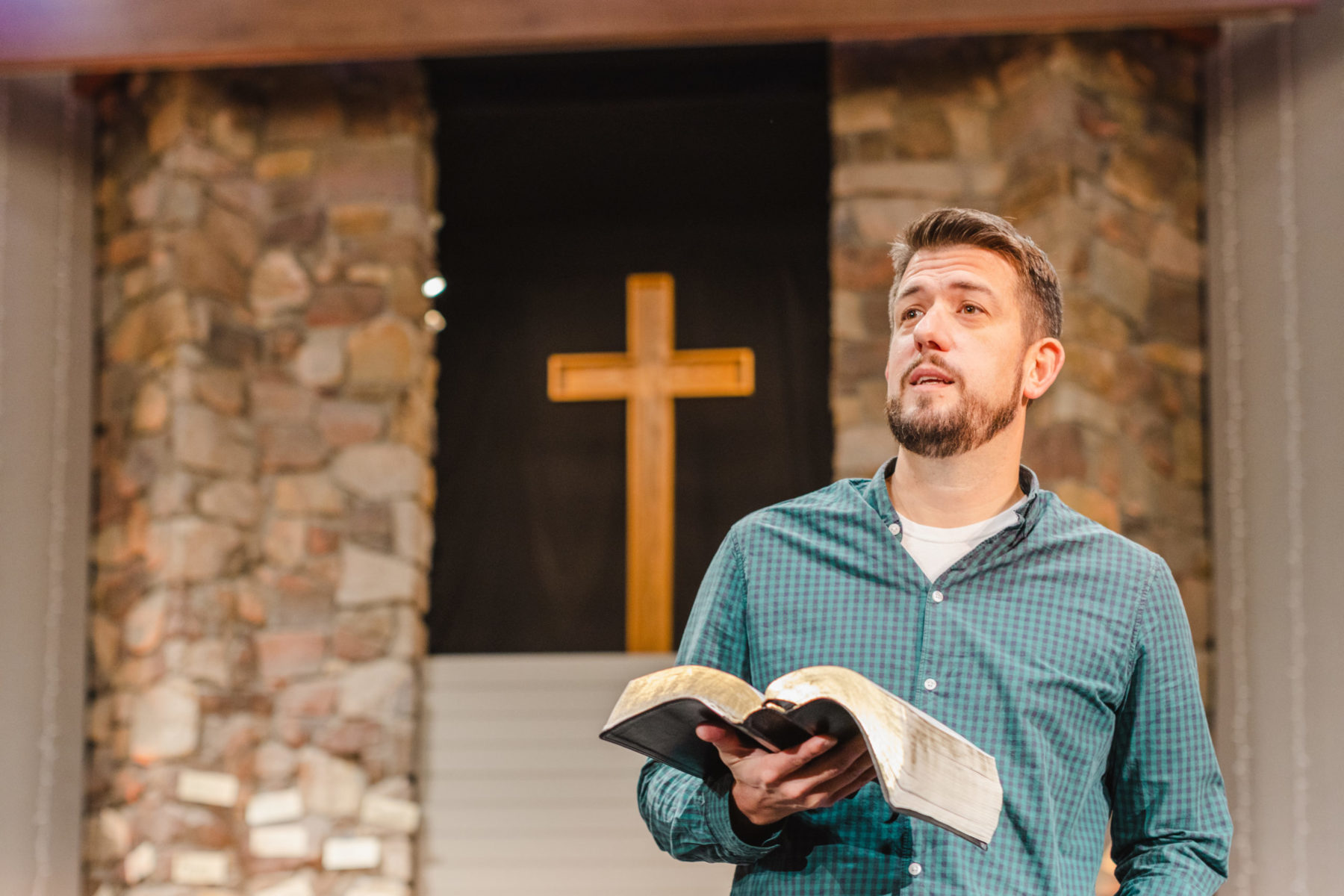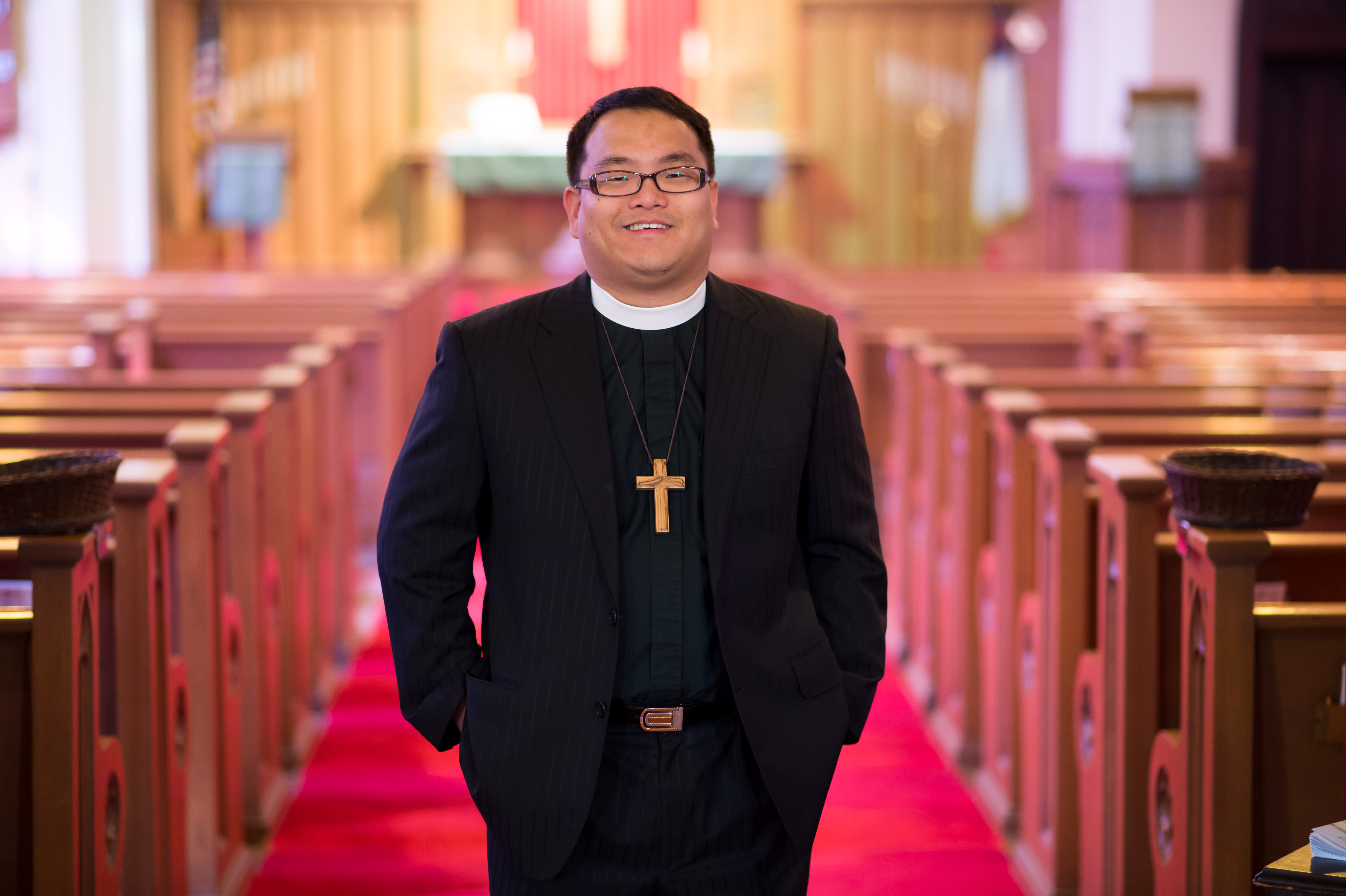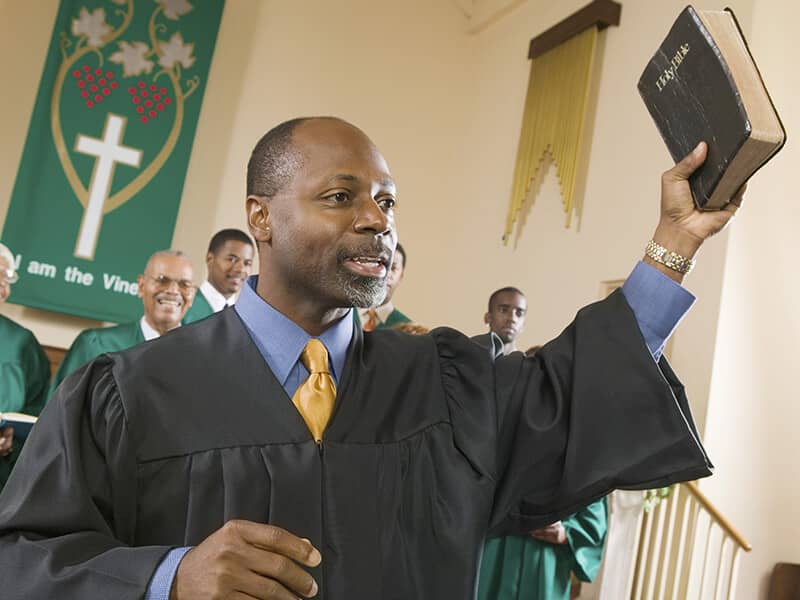When Faith Fails: A Pastor Embezzles $200k & Shatters Trust
In communities worldwide, the role of a pastor is often seen as a beacon of moral integrity, spiritual guidance, and unwavering dedication. They are entrusted not only with the spiritual well-being of their flock but frequently with the financial stewardship of their church's resources. This profound trust forms the bedrock of the relationship between a congregation and its leader. However, what happens when this sacred trust is fundamentally broken, when the very individual sworn to uphold the highest ethical standards is found to have committed a grave betrayal? The shocking reality of a pastor embezzling $200k can send seismic waves through a community, leaving a trail of disbelief, hurt, and profound questions about faith and accountability.
Such incidents are not just financial crimes; they are spiritual wounds that cut deep into the heart of a community. They force congregations to confront difficult truths about human fallibility, even within the most revered positions. Understanding the multifaceted impact of such an event, from the breach of trust to the path of healing, is crucial for anyone seeking to comprehend the full scope of what it means when a spiritual leader succumbs to financial misconduct. This article delves into the complexities surrounding a pastor's role, the devastating effects of embezzlement, and the essential steps needed to rebuild and restore faith.
Table of Contents
- The Sacred Trust: Understanding a Pastor's Role
- The Shocking Revelation: When a Pastor Embezzles $200k
- Anatomy of Betrayal: How Embezzlement Unfolds in a Church
- The Ripple Effect: Impact on Congregation and Community
- Legal and Ethical Ramifications: Justice and Accountability
- Rebuilding Trust: Steps for Healing and Prevention
- The Broader Implications for Religious Institutions
- Lessons Learned and Moving Forward
The Sacred Trust: Understanding a Pastor's Role
The title "pastor" carries immense weight and responsibility within Christian communities. As the "Data Kalimat" aptly describes, a pastor is "far more than just a leader or a guide." Whether ordained or commissioned, their appointment into the role bestows upon them significant authority and a wide array of duties. At its core, "the meaning of pastor is a spiritual overseer, a clergyperson serving a local church or parish." They are individuals who are believed to be "called to serve others in their spiritual and physical needs as ministers," walking with God in their personal lives.
- Major Harris Ti Son Died
- Indian Uncut Web Series
- Eddie Phelps Miki Howard A Tale Of Two Legends In The Spotlight
- Aishah Sofey S
- Neil Patrick Harris Amy Winehouse Cake
This calling is not merely ceremonial; it demands "dedication, wisdom, and a servant’s heart." A pastor's role encompasses spiritual leadership, administration, and the profound responsibility of shepherding the flock of God. They are expected to provide spiritual guidance, teaching, and oversight to a congregation. This includes "preaching and teaching the word of God," delivering sermons and lessons that deepen the faith of their congregants. Beyond the pulpit, their duties extend to providing support, offering counsel, leading worship, and being a constant source of spiritual guidance within the community of believers. The trust placed in a pastor is multifaceted, covering their spiritual integrity, their moral compass, and their handling of the church's temporal affairs.
Beyond the Pulpit: Daily Duties and Dedication
The life of a pastor is rarely confined to Sunday services. It is a demanding, 24/7 commitment that requires constant availability and emotional resilience. Their administrative duties can be extensive, involving everything from managing church staff and volunteers to overseeing budgets and property maintenance. They often serve as counselors, mediating disputes, comforting the grieving, and celebrating life's milestones with their congregants.
Furthermore, pastors are expected to embody the values they preach. Their personal lives are often under scrutiny, serving as an example for the community. This immense pressure, coupled with the inherent vulnerability of handling large sums of money, can sometimes create an environment where opportunities for misconduct arise, even for those who initially entered the ministry with pure intentions. The "Data Kalimat" emphasizes "the 20 vital roles of a pastor, including shepherding, teaching, and leading, all grounded in scripture," highlighting the comprehensive nature of their responsibilities.
The Shepherd and the Flock: A Covenant of Care
The metaphor of the shepherd and the flock is central to understanding the pastor-congregation relationship. A shepherd is meant to protect, guide, and nourish their sheep. Similarly, a pastor is seen as the spiritual protector and provider for their church community. This relationship is built on a covenant of care, where congregants implicitly trust their pastor to act in their best spiritual and communal interests. Financial stewardship is an integral part of this covenant, as church funds are often donations from congregants, intended to further the church's mission, support its ministries, and maintain its operations. When a pastor embezzles $200k, it is not just a theft of money; it is a profound violation of this sacred covenant and a betrayal of the trust placed in them as a spiritual leader.
The Shocking Revelation: When a Pastor Embezzles $200k
The news that a pastor embezzles $200k from their own church is often met with widespread disbelief and devastation. For many, it's an unthinkable act, a direct contradiction of everything a spiritual leader is supposed to represent. The sum of $200,000 is substantial for most churches, particularly smaller ones, and its loss can cripple ministries, delay essential repairs, or even threaten the church's very existence. Beyond the financial damage, the emotional and spiritual fallout is immense. Congregants may feel personally betrayed, questioning their judgment, their faith, and even the integrity of the institution itself.
Such revelations often come to light through audits, anonymous tips, or a sudden, unexplained decline in church funds. The initial reaction is typically shock, followed by anger, confusion, and a deep sense of hurt. This isn't just about money; it's about the erosion of trust in a figure who was supposed to be a moral compass. The phrase "a pastor embezzles $200k" becomes a painful shorthand for a crisis of faith and community.
Anatomy of Betrayal: How Embezzlement Unfolds in a Church
Embezzlement in a church setting, particularly when a pastor is involved, often exploits inherent vulnerabilities in financial oversight. Many churches, especially smaller ones, operate on trust-based systems with limited checks and balances. A single individual, often the pastor, may have too much control over incoming donations, outgoing payments, and financial records. This lack of segregation of duties creates fertile ground for misappropriation.
Common methods of embezzlement include:
- Direct Cash Skimming: Taking a portion of cash donations before they are recorded or deposited.
- False Expense Reimbursements: Submitting fake receipts or inflating legitimate expenses.
- Unauthorized Withdrawals/Transfers: Directly moving funds from church accounts to personal ones.
- Vendor Fraud: Creating fake invoices for services never rendered or paying inflated amounts to complicit vendors.
- Payroll Schemes: Adding ghost employees or inflating salaries.
Red Flags and Warning Signs for Congregations
While it's difficult to suspect a beloved spiritual leader, certain red flags can indicate financial irregularities. Congregations and church boards should be vigilant for:
- Lack of Transparency: Unwillingness to provide financial reports, vague answers about expenses, or resistance to audits.
- Excessive Control by One Person: When a single individual (e.g., the pastor) handles all aspects of finances, from collecting offerings to making deposits and writing checks.
- Unexplained Lifestyle Changes: A pastor living beyond their known means or suddenly acquiring expensive assets.
- Missing Documentation: Incomplete financial records, missing receipts, or altered statements.
- High Staff Turnover in Financial Roles: Frequent changes in treasurers or bookkeepers, possibly due to discomfort with practices.
- Declining Deposits Despite Stable Attendance: If offerings seem lower than expected without a clear reason.
The Ripple Effect: Impact on Congregation and Community
The impact of a pastor embezzling $200k extends far beyond the monetary loss. It creates a profound crisis of faith and trust that can take years, if not decades, to heal.
- Emotional Trauma: Congregants often experience feelings of anger, betrayal, grief, and confusion. They may feel foolish for having trusted the individual.
- Spiritual Doubt: For some, the incident can shake their faith in religious institutions, leaders, or even their personal spiritual journey. They may question the authenticity of past sermons or guidance.
- Divisions within the Church: The revelation can cause deep rifts, with some members wanting to forgive, others demanding justice, and some leaving the church altogether.
- Financial Hardship: Ministries may be cut, staff laid off, or vital community programs discontinued due to the lost funds. This directly impacts the church's ability to fulfill its mission.
- Reputational Damage: The church's standing in the wider community suffers, making it harder to attract new members or secure external funding.
- Erosion of Volunteerism: Members may become hesitant to volunteer their time or resources, fearing further mismanagement.
Legal and Ethical Ramifications: Justice and Accountability
When a pastor embezzles $200k, it is a criminal act with serious legal consequences. Law enforcement agencies, typically local police or federal authorities if funds crossed state lines, will conduct investigations. The pastor can face charges of embezzlement, fraud, and theft, which can lead to significant prison time, hefty fines, and mandatory restitution. The church may also pursue civil litigation to recover the stolen funds.
Ethically, the breach is equally severe. A pastor is held to a higher moral standard due to their position of spiritual authority. Embezzlement not only violates civil law but also fundamental religious principles of honesty, stewardship, and integrity. Most denominations have internal disciplinary processes that would lead to the pastor's defrocking or removal from ministry, regardless of the legal outcome. This ensures that the individual can no longer hold a position of trust within the religious community. The case of a pastor who embezzles $200k becomes a cautionary tale, emphasizing the critical need for accountability at all levels of church leadership.
Rebuilding Trust: Steps for Healing and Prevention
Recovering from an incident where a pastor embezzles $200k is a long and arduous journey. Rebuilding trust requires a multi-faceted approach centered on transparency, accountability, and genuine efforts at reconciliation.
- Full Transparency: The church leadership must be completely open with the congregation about what happened, how it was discovered, and the steps being taken. This includes sharing investigation findings (within legal limits) and financial reports.
- Accountability: The responsible parties must face appropriate consequences, both legal and ecclesiastical. This demonstrates that such actions will not be tolerated.
- Enhanced Financial Controls: Implement robust systems to prevent future fraud. This is perhaps the most critical practical step.
- Professional Support: Seek guidance from financial experts, legal counsel, and pastoral counselors specializing in church trauma and healing.
- Open Communication: Create safe spaces for congregants to express their feelings, ask questions, and participate in the healing process.
- Focus on Mission: Reaffirm the church's core mission and values, reminding members why they are part of the community beyond any individual leader.
Implementing Robust Financial Safeguards
To prevent future instances of a pastor embezzling $200k or any amount, churches must adopt stringent financial management practices.
| Safeguard Measure | Description |
|---|---|
| Segregation of Duties | No single person should handle all aspects of a financial transaction (e.g., collecting, depositing, recording, authorizing payments). Different individuals should be responsible for different steps. |
| Regular Audits | Conduct independent annual audits by qualified external accountants. For smaller churches, a financial review by a committee of trusted, financially savvy congregants can suffice. |
| Dual Signatures | Require two signatures on all checks above a certain amount. |
| Bank Reconciliation | Bank statements should be reconciled monthly by someone not involved in collecting or depositing funds. |
| Budget Adherence | Develop and strictly adhere to an annual budget, with regular reporting to the board and congregation. |
| Internal Controls Policy | Establish clear written policies for cash handling, disbursements, expense reimbursements, and financial reporting. |
| Background Checks | Conduct thorough background checks on all individuals, including pastors and staff, who will have access to church funds. |
These measures, while perhaps seeming bureaucratic, are essential for protecting the church's assets and restoring confidence in its financial integrity. They transform a trust-based system into a system based on verifiable accountability, significantly reducing the risk of a pastor embezzling funds.
The Broader Implications for Religious Institutions
An incident where a pastor embezzles $200k sends ripples beyond the immediate congregation, affecting the broader perception of religious institutions. Such cases contribute to public skepticism about the integrity of religious leaders and organizations. This can lead to a decline in overall charitable giving to religious groups, as donors become more cautious about where their money goes.
It also highlights the need for greater governance and oversight within religious bodies. Many denominations are now implementing stricter financial guidelines, mandatory training for clergy on financial ethics, and more robust audit requirements. The goal is to safeguard church assets, protect congregations, and maintain the credibility of religious institutions in an increasingly scrutinized world. The unfortunate reality is that a single case of a pastor embezzling $200k can tarnish the reputation of countless honest and dedicated ministers.
Lessons Learned and Moving Forward
The painful experience of a pastor embezzling $200k serves as a stark reminder of the human element in even the most sacred of institutions. It underscores that trust, while fundamental, must always be accompanied by accountability and transparency. Churches are not immune to the vulnerabilities of financial misconduct, and vigilance is paramount.
For congregations, the journey is one of healing, forgiveness (where appropriate), and rebuilding on a stronger, more transparent foundation. For religious leaders, it's a call to uphold the highest standards of integrity, not just in spiritual matters but in all aspects of their stewardship. While the betrayal is deep, it can also be a catalyst for positive change, leading to more resilient, accountable, and ultimately, healthier church communities. The lessons learned from such painful events are invaluable, guiding future practices to ensure that the sacred trust placed in pastors is honored and protected.
What are your thoughts on this complex issue? Have you witnessed similar challenges in your community, and how did they navigate the path to healing? Share your insights and experiences in the comments below. If you found this article informative, please consider sharing it with others who might benefit from understanding the profound impact of financial misconduct in religious settings. You might also be interested in exploring our other articles on church governance and community resilience.

Are Pastors Called To Shepherd

Pastor

Why We Should Stop Seeing Our Pastors as Perfect | Mistakes by Church